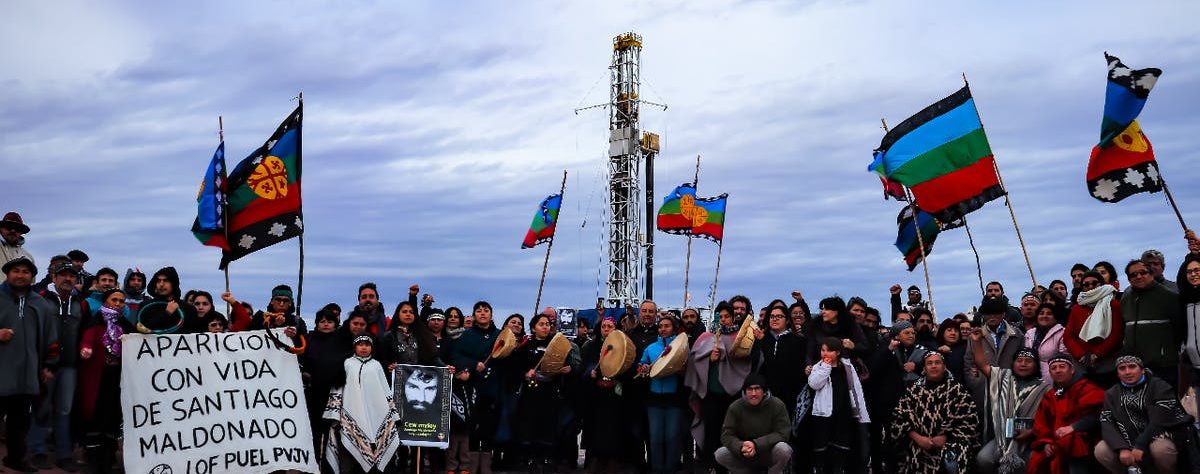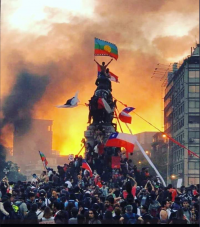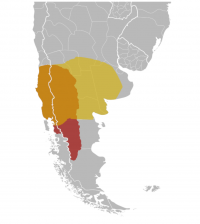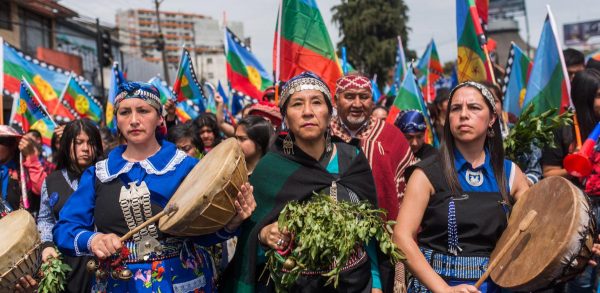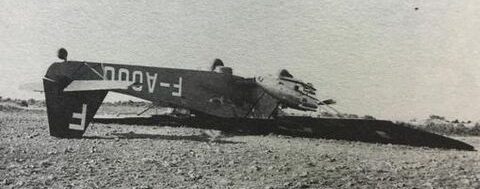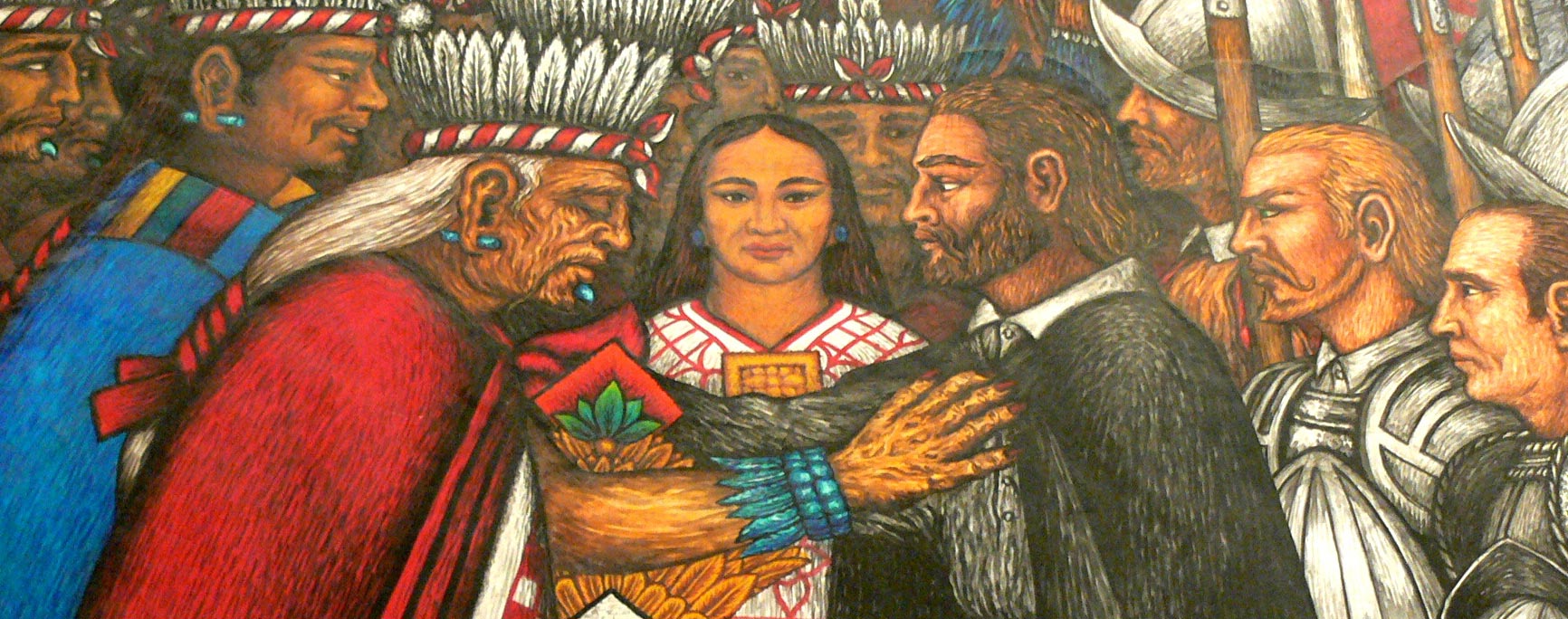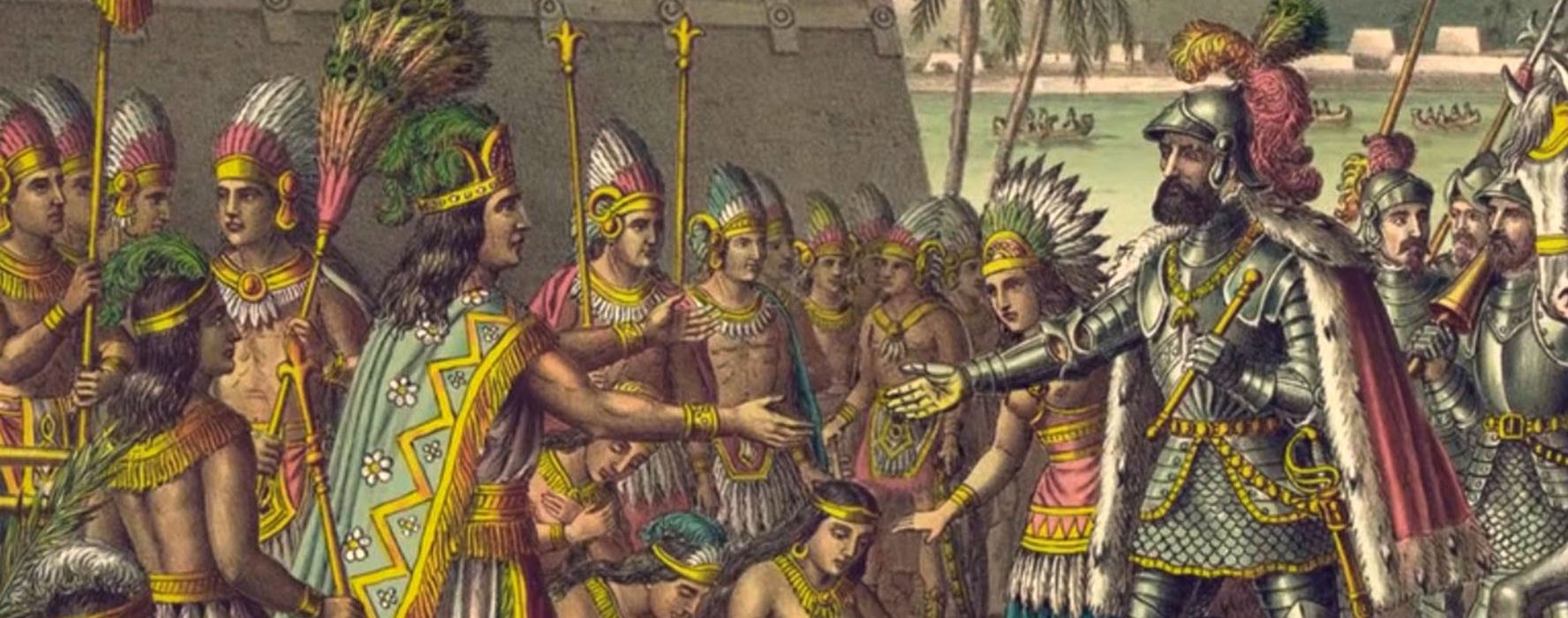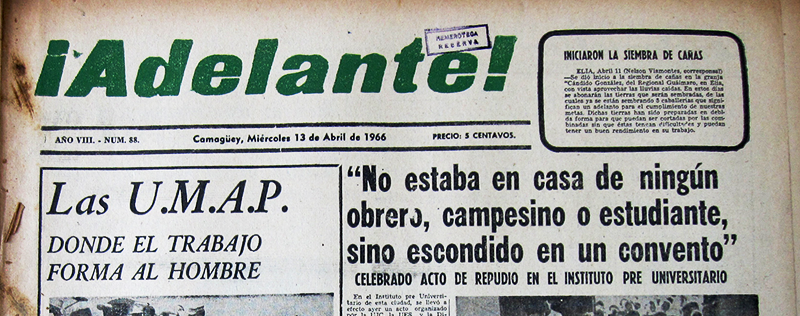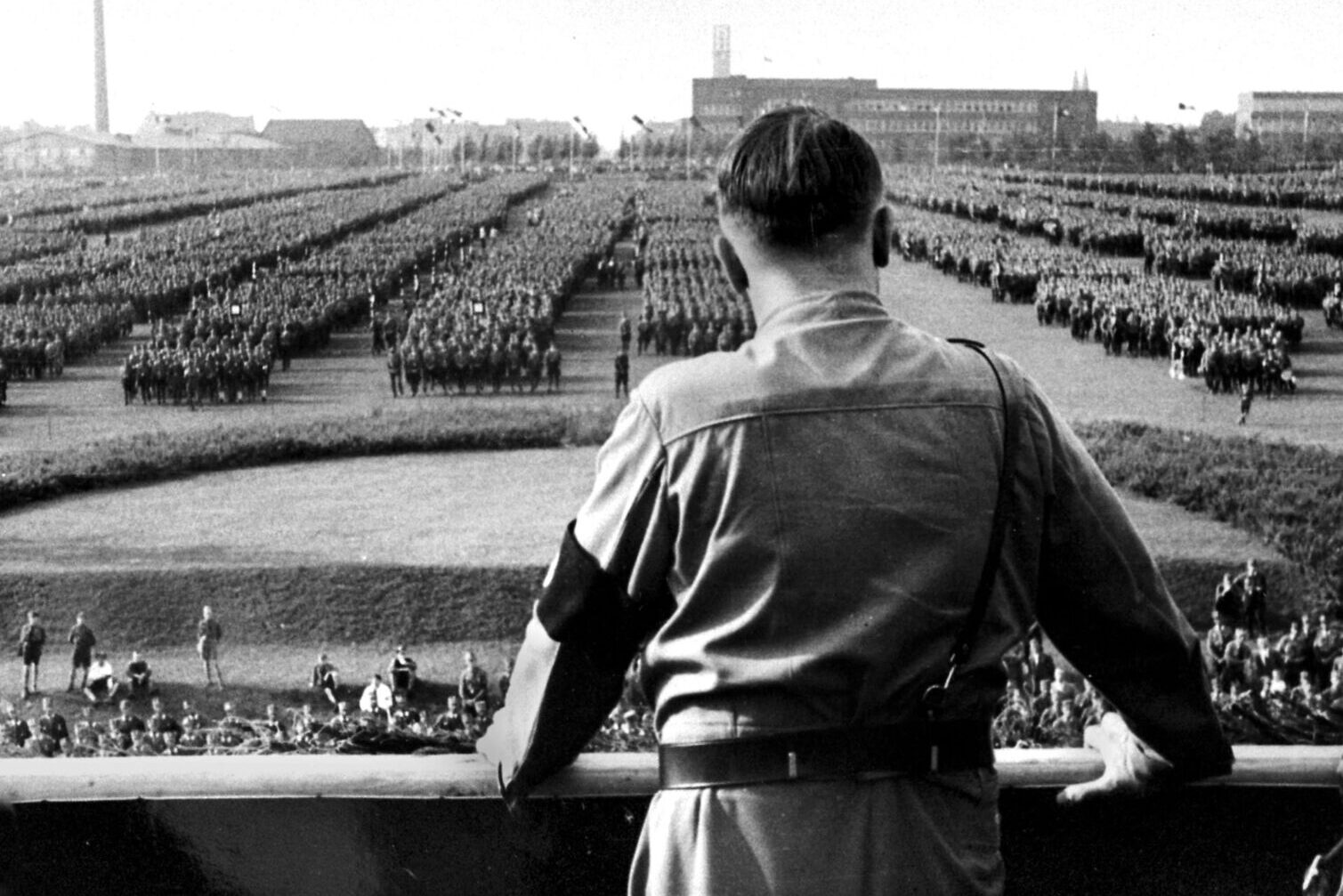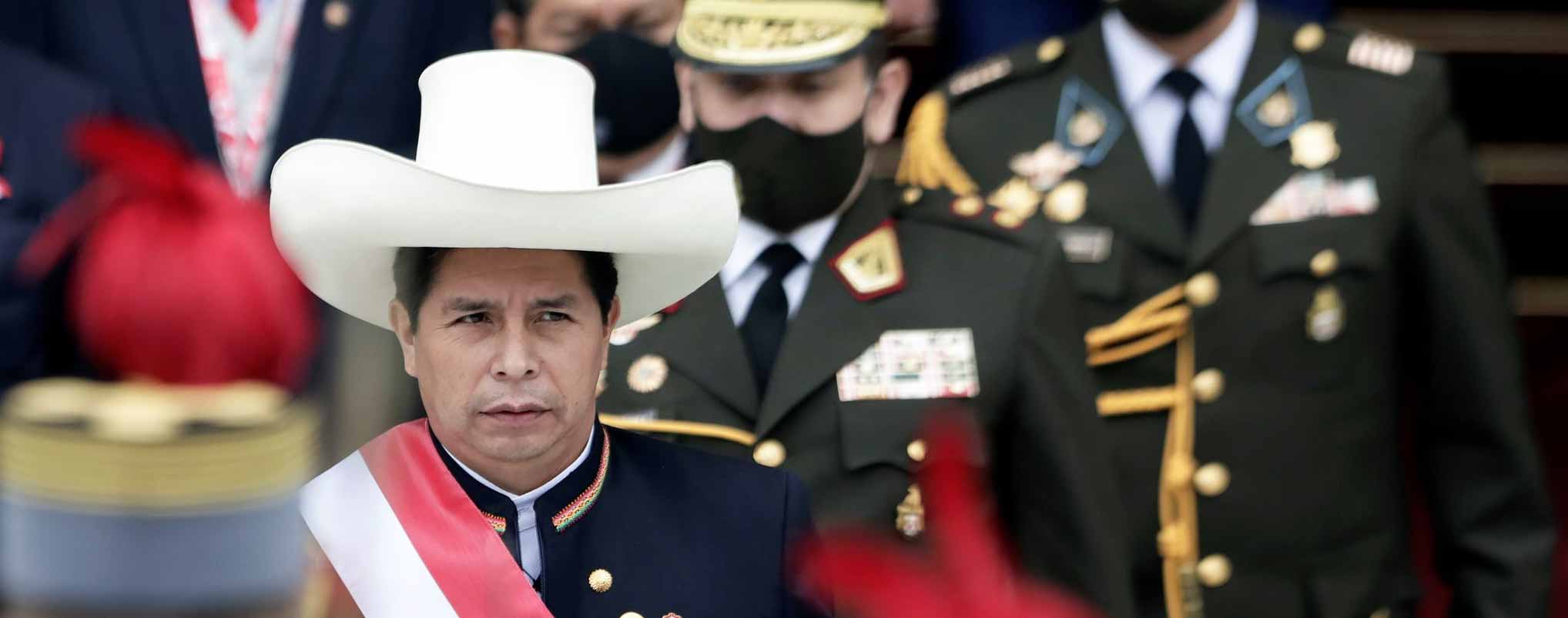Source:Que no te la cuenten
Who are these so-called indigenous Argentinians, where do they come from and what do they want? As has already been sufficiently and irrefutably proven, the self-styled Mapuches were invading and homicidal tribes made up of foreign Indians (Chilean Araucanians), who did not appear on the Argentine territorial scene until well into the 19th century1 , exterminating and forcibly banishing the native aborigines from our lands. They came to settle at the very gates of Buenos Aires, living by raiding, pillaging, robbery, murder, rape, abduction of women, and destroying and setting fire to the populations of our natives – particularly the Tehuelches. In this predatory campaign of pillage and irruption they were supported by Chilean militiamen and Pincheira royalist guerrillas, as Roberto Porcel2 notes. We owe the liberation and pacification of the usurped territory to General Julio Argentino Roca and our army (unanimously supported in their mission by all citizens, including the Tehuelche)3. In this respect, it is particularly interesting to hear the testimony of the Chilean army and the Chilean army that they were able to liberate and pacify the usurped territory.
Particularly interesting in this regard is the testimony recently offered by Roberto Chagallo, a direct descendant of Tehuelches, where, after denouncing the several thousand of his brothers murdered at the hands of Mapuches, he asks: “do knowledgeable scholars know that in 1806, the Araucanian invader Choroy with a powerful cavalry and spears razed the Tehuelche infantry, who defended themselves with bolas?” The true intentions and face of the enemy within and without4 that vindicate these Chilean Indians do not escape their knowledge:
From 1670-1902 the Chilean Nguluches/Araucan invaders, mysteriously, surprisingly and untimely changed their name to Mapuches and this does denote a real question mark; catalogued as a Chilean political manoeuvre and which was one of many stratagems experimented with. (…) After the border dispute with CHILE in 1902, it was very common to send trained Araucanians to confuse and convert the Puelches to their cause, taking advantage of their ignorance or lack of political knowledge. In addition, the Universal Power managed by the English, French, Russians and North Americans who promote with cunning, skill and alternative resources the ethno-cultural and territorial disintegration of the Argentine Republic.5
We know, as the National Constitution clearly states, that in order for an indigenous group to be considered Argentine, it must meet the following conditions: 1) That they are native indigenous communities. 2) The lands must have been traditionally occupied by them. 3) That they were occupied at the time of its enactment6. The so-called Mapuche do not meet any of the required conditions. It is clear then that they are not Argentines, ergo, their claims for territorial recognition in our nation are not valid. Moreover, they should first apologise to our native Tehuelches for their campaigns of extermination and usurpation.
And what have the British got to do with it? The adage Divide et impera belongs, as we well know, to Julius Caesar, but we could well attribute it, closer to our era and particularly in the political sphere, to Machiavelli. Its most perfect factual application, to the British Crown in its pseudo-diplomatic manoeuvres and tactics outside the walls. Its “native” agents or fifth column in our country (in this particular case): the Mapuche. At least this is what the neat compilation of certain facts, objective and verifiable,7 suggests.
The word “Mapuche”, as Jorge Mones Ruíz rightly points out, was created for a specific purpose: “This voice from the ancient Arauco does not correspond to any ethnic type or partiality, or family or culture, whether these designations are used in particular or in general”. We do not find records of this name until the beginning of the 20th century. The Strategy and Organisation graduate goes on to say:
This term was created by Chilean scholars and interested English agents, who, by using the word Mapuche to apply to the indigenous peoples of both Chile and Argentina, made old ethnic groups such as the Araucanians, Pampas, Huiliches, Pehuenches or Tehuelches disappear, agglutinating them under the name of Mapuche, which was used to refer to the indigenous peoples of Chile and Argentina, by agglutinating under the name of Mapuches all the partialities that were Argentinean, erasing them from the mountain valleys and Patagonia, in order to gain possession of a vast and fertile Argentinean territory, which centuries before had been invaded by Chilean Araucanians.
This “Mapuche creation” equated everyone and was, and is, an expression that many unsuspecting people fail to understand. It was a “geostrategic invention” and today it is a problem that has been reinforced by foreign interests. Admiral Fraga refers to the “Mapuche question” as a particularly important circumstance in the geopolitical and geostrategic approach to Patagonia. It is worth noting that the supposed “Mapuche nation” encompasses an area that includes under the same region a portion of Chilean and Argentine territory (in the latter case in the province of Neuquén and its projection on the other side of the Andes)8.
And what do the Mapuche want? As they themselves have stated on several occasions, they are seeking the creation of a fully autonomous Mapuche state within our country9. Several Mapuche organisations are demanding recognition of the right to self-determination, arguing that they are entitled to it as “original peoples”. Referring to the Mapuche lobby in Europe, we read the following in the newspaper La Nación: “Through alliances with pro-independence parties in Europe, among them Batasuna, Mapuche ambassadors are seeking support to carry out in Chile the model of autonomy in force in Spain, as a prior step to full independence”10.
According to the latest reports, the Mapuche have to date expropriated hundreds of fields, installations and thousands of hectares, claiming no less than hundreds of thousands more (no less than a quarter of the current territorial extension of the Republic of Argentina)11. On 16 August 2009, the Argentine daily La Nación reported:
The resurgence of indigenism can be seen at a glance in homes and rural establishments in Jujuy, Neuquén and Río Negro, where the flag of the Tawantinsuyu (Inca Empire), in the north, and that of the Mapuche, in the south, are increasingly seen flying. These symbols speak of a desire for more than just a place to live: they refer, practically speaking, to an “independent region (…) There have been rumours for some time about the entry of Chilean Mapuche activists to participate in conflicts in Argentinean camps (…).
We are certainly not dealing here with peaceful claims or harmless militants. Their terrorist methodology has been causing terror in Argentine society and, very particularly, in Chilean society. Chile does not escape the territorial ambitions of the Mapuche. The perks enjoyed by these criminal hordes are limitless. A recent case shook the Chilean public when the Chilean state authorised the Mapuche prisoner and murderer Celestino Córdova to celebrate the Mapuche New Year in prison by inviting more than 100 guests. Celestino Córdova is in prison for having murdered, together with other indigenous people, a married couple (Luchsinger-Mackay) on 4 January 2013. As reported by a newspaper in that country, he is also accused of involvement in another armed attack in the same commune on 22 December 201212. According to official statistics, in 2012 alone there were 287 reports of threats, arson, seizures and bomb attacks in the areas of Chile claimed by the Mapuche, including two deaths: that of Carabineros sergeant Hugo Albornoz and that of Héctor Gallardo13.
The links and direct links between the Mapuche and organisations, manifestly and ostensibly terrorist, such as FARC, ETA14 and the Mothers of Plaza de Mayo are clear, who, among other things, provide the former with military training, weapons and economic funding15. It would be a grave mistake to underestimate this supposedly native people, their intentions and the skill and determination of their militants: we are not dealing with dispersed and disorganised groups, but, properly speaking, with a self-sufficient, foreign and enemy army based in the very heart of our beloved, pretended and envied Patagonia16.
If the matter is not settled promptly and with determination, Argentina – and to some extent Chile – will be plunged into a scenario similar to that of Spain, where terrorism, bloodshed and movements destructive of national unity are commonplace.
Notes
- According to Alberto Buela, they arrived in La Pampa from 1770 onwards and were Pehuenches indians from Ranquil (today Chile) and settled in the middle of the cladenar (Caldén mountains) of the central Pampa, also called Mamil Mapu (country of the mountain). El Camino al Infierno empedrado por las buenas intenciones II, Breve sobre indios e indigenistas, 12 May 2010.
- Roberto E. Porcel, Río Negro Newspaper – Friday 14 August 2009. The author is a full member of the Academia Argentina de la Historia and has dealt with the subject in various works and articles. Cfr. http://www1.rionegro.com.ar/diario/tools/imprimir.php?id=19977
- It should also be noted that before our national troops dealt with them, the Araucanians – today called Mapuches – were fiercely fought by our indigenous natives, who were affected by the rapacious expeditions and territorial alienation of these invaders.
- These are some of the main officials of the Mapuche Nation organisation (the surname that most resembles an Araucanian is SMITH; a very suggestive fact that speaks for itself): Reynaldo Mariqueo (Secretary General); Nina Dean – (Assistant Secretary General); Gemma Swistak – (Treasurer); Colette Linehan – (Administrator); Madeline Stanley – (Volunteer Coordinator). -(Volunteer Coordinator). Legal Team: Andrea Rubio – (LLM); James Watson – (LLM); Gillian Melville – (LLM); Tanya Roberts-Davis. Human Rights Team: Rachel Dixon-Warren (Coordinator); Cécil Jagoo; Barbara Chambers. Translators: Madeline Stanley; Katy Brickley; Kitty McCarthy; Heidi Walter; Sabine Patrolin; Barbara Chambers; Laetitia Le Cordier; Anna Harvey
MAPUCHE INTERNATIONAL LIAISON HEADQUARTERS:
6 Lodge Street – Bristol
BS1 5LR England.
Tel/Fax: + 44-117-9279391.
E-mail: [email protected] (data taken from their official website: www.mapuche-.nation.org). - Letter from Roberto Chagallo to the editor of the publication La Angostura Digital, published in the section Cartas de Lectores on 10/04/13, in reference to a previous article. (10/04/13). Cfr. https://archive.fo/wGpZw. However, it is curious that he currently lives in Miami, USA. In support of the latter, Roberto E. Porcel sent a note to the same media entitled Los Mapuches y los “genocidios de nuestros indios del sur” (Tehuelches), published on 16/04/13. Full article at: https://archive.is/75KAR
- (…) It should be noted that the Constitution refers to the lands they occupied at the time of its sanction (15 December 1994). This concept was ratified by Article 1 of Law 26.160 passed on 1 November 2006. Taken from Roberto E. Porcel -Member of the Argentine Academy of History-: Lecture given at the invitation of INIFTA, at the National University of La Plata, Faculty of Exact Sciences -sponsored by CONICET-, on Friday 23 October 2009, at 6 pm. We recommend consulting his books on the subject. We have taken the passages quoted from the website of the publication Notashistoricasporcel, 22-6-2010. Cf. http://notashistoricasporcel.blogspot.com/2010/06/aborigenes-argentinos.html
- It is no secret that the British made a decisive contribution to the disintegration of Spanish America by organising and promoting its independence from Spain. Their desire for territorial, economic, cultural and political domination of the continent is now well established and recognised. Therefore, their support, sometimes explicit, for insurrectionary groups, rebels, inserted in the nations, should come as no surprise. This policy, we know, has been applied all over the world and throughout its imperialist history.
- Jorge Mones Ruiz, Los Mapuches no son un pueblo originario. Cfr. https://nanopdf.com/download/los-mapuches-no-son-un-pueblo-originario_pdf.
- Quoted by Alberto Salvini in an article entitled Map of the New Mapuche Country, where he denounces the territorial pretensions of this group that aspires to expropriate a quarter of the current Argentinean and Chilean territorial extension. Cfr. http://politicaydesarrollo-archivo.blogspot.com.ar/2009/09/malon-mapuche-en-el-siglo-xxi-ii-parte.html.
- La Nación, Sunday 10 February 2008, section “Enfoques”.
- http://www.defenderlapatria.com/argentina%20y%20chile%20conflicto%20mapuche.pdf. On the other hand, the newspaper La Nación reported on 26 October 2008 on the usurpation of land in the Nahuel Huapi National Park. Cfr. http://www.lanacion.com.ar/1063348-denuncian-a-mapuches-por-usurpar-tierras
- El Mercurio, Chile, 25-8-13. Cfr. http://www.elmercurio.com/blogs/2013/06/11/12521/Caso-Luchsinger-inaceptable-ceremonia-en-lacarcel.aspx
- La Nación, Sunday 27 January 2013, section “Enfoques”. Cfr. http://www.lanacion.com.ar/1548992-araucania-violenta-la-otracara-del-reclamo-mapuche
- Several written and oral media, independent or not, have been denouncing the aforementioned manoeuvres. Política y Desarrollo published the following on 18-8-09: “According to reports in El Mundo on Tuesday, the Chilean police have accused the pro-ETA organisation Askapena of teaching the Mapuche rebels who have recently clashed with the security forces in the Andean country how to use weapons. In fact, they believe that this Basque group wants to turn these indigenous people into a kind of terrorist group. Askapena-Comités Vascos de Solidaridad con los Pueblos calls itself an NGO that claims to belong to the Basque National Liberation Movement and urges the indigenist movements to fight for what they consider a “fairer” society. The conflict with the Mapuche began in the 1990s but has intensified in recent days after the main indigenist leader was killed in a shootout with the police. Subsequently, his followers attacked police stations and government offices with firearms. In this regard, the Chilean authorities are considering various hypotheses about the origin of the weapons used, either on a fishing boat or via Argentina. However, the secret services suggest that both Askapena militants and FARC terrorists are instructing the so-called “weichafes” in the use of the weapons.” See also investigation and report published in the newspaper El Mercurio, 15 October 2002, entitled El lobby de los mapuches viajeros.
- One of the main patrons of the Mapuche Organization is the Rockefeller Foundation, as can be verified on its website. Reynaldo Mariqueo and Rafael Railaf are the “ambassadors” of the Mapuche groups in Europe. Mariqueo is the head of Mapuche International Link, based in England, and Railaf directs the Folil Foundation in Holland. Something similar, but with funds from the national state, is happening in the north of our country, in the province of Jujuy, with the organisation Tupac Amarú. In a very interesting article that appeared in the newspaper La Nación on Sunday 10 February 2008, the networks of European terrorist groups – separatists – with the Mapuche are denounced. We recommend reading it in its entirety. Available at: http://www.lanacion.com.ar/985914-autonomias-el-lobby-mapuche-en-europa
- In a Reader’s Letter published by a well-known Argentinean newspaper, an afflicted Argentinean citizen said the following: “It calls my attention, as Dr. Porcel points out, that no authority does anything, and that the prosecutors and judges, I add, fail to apply ex officio the precautionary measures intended to stop the effects of the crime of usurpation committed by these gentlemen and to order the restitution of the land to the National Parks Directorate, land whose use and enjoyment belong to all Argentines, as it is a public property.” La Nación newspaper, Sunday 10 February 2008, Readers’ letter signed by Eduardo Zabaleta from Chubut.
Share this article
On This Day
- 1572 Andrés Díaz Venero de Leyva founded the town of Guaduas (Colombia).
- 1578 Brunei becomes a vassal state of Spain.
- 1672 Spanish comic actor Cosme Pérez ("Juan Rana") dies.
- 1693 Painter Claudio Coello dies.
- 1702 The Marquis de la Ensenada was born.
- 1741 Spanish troops break the siege of castle San Felipe in Cartagena de Indias (Colombia).
- 1844 The Royal Order of Access to Historical Archives was promulgated.
- 1898 President Mckinley signed the Joint Resolution, an ultimatum to Spain, which would lead to the Spanish–American War.
History of Spain
26 August 2020
27 January 2021
Communism: Now and Then
23 December 2022
28 July 2021
